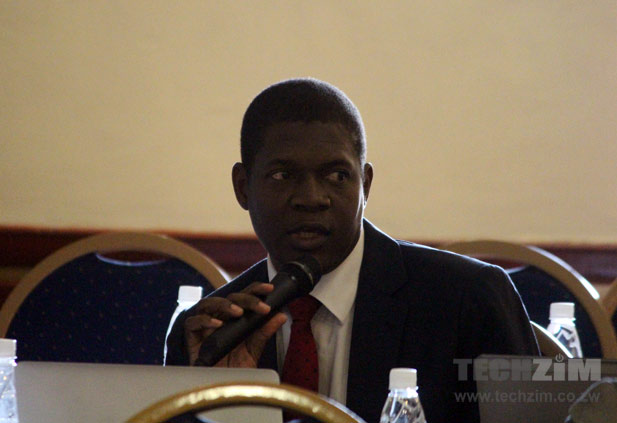I attended six schools during my six years of secondary education. I lived in all kinds of conditions and I saw a lot but if there is one thing that stood out, it was the gap that exist between the opportunities to advance for an urban versus a rural school. It is my firm belief based upon those experiences that unless “Harare is Zimbabwe, and Zimbabwe is Harare”, STEM as postulated by Professor Jonathan Moyo will fail unless the government is devolved.
When I was at Nerupiri Government Secondary School in 1997, I studied the typical science subjects Biology ,Physics and Chemistry plus Mathematics for my O Levels. We had no electricity then and I still remember being taught about an oscilloscope even an ammeter but I had no clue what those were except from pictures. There was nothing inspiring in science, rather we all found ourselves gravitating towards the romance of literature because we found emotions in Ngugi’s Matigari more relevant to our life stories than Ohm’s Law.
In 1999 I found myself at Mutare Boys High School, a government school in the heart of Mutare City. One of our first lessons was on electromagnetism and we were assigned oscilloscopes and digital ammeters. Unfortunately my partner was Kurauone Madzivanyika, a friend of mine who had done his O Levels at Nyashanu Mission in Buhera. We both struggled to figure out how those things worked, yet the students who had attended school at Mutare Boys did this in a breeze. Over time we caught up but we had to work extra hard on a lot of things. These were both government funded schools but in different geographic locations with totally different resources. I understand that Mutare Boys was formerly a whites-only school but this was 17 years after independence! The gap is worse today.
Instead of blaming, I would like to propose something. I have always been a proponent of federalism which is an extreme form of devolution. My reasons are documented here. I propose a 50-30-20 taxation model. Every person in Zimbabwe’s tax burden would be split this way; 50% goes to the central government, 30% to the local government in his current area or residence and 20% goes to a rural district of his choice (If not, maybe the rural district depicted on his National ID). This amount would be specifically for infrastructural maintenance and development.
Why am I making this proposal? Of all the people who went through Nyahombe Primary School in Chivi, none of them have been in a position help the school out of dilapidation. We cannot afford to from our meagre salaries. The constitution of Zimbabwe puts a 5% baseline for budgetary distributions of revenue to Local governments and this is at the whim of the Finance Minister. If we had used the model I suggested in 2014 ; in total individual tax revenue was $900 million, which means $180 million would have gone directly to local governments just for infrastructure. Minister Chinamasa allocated $150 million for all the local governments.
Why is it important that we separate rural local governments from urban and provincial governments. The constitution accords these the power to levy and tax too but who do you tax in the middle of nowhere in Malipati? Only 0.1% of the population there is gainfully employed everybody else is just a subsistence farmer. There are many people with taxable jobs who come from Malipati and went to Malipati schools but are in Harare, Masvingo, Bulawayo etc. So in the end, there is no revenue even for rudimentary things. If Buhera South was to get $2 million from the $180 million , maybe they would have managed to finish a science block at Mutemera Secondary School.
So without carefully thinking about the predicament of the brilliant child in Gwelutshena whose only sin is being born in some remote village, we run the risk of making interventions that will further alienate people from the reachable dream of change in our country. STEM should be promoted but it is not for lack of the love and passion, rather it is because of general neglect of the potential that ordinary children have to change this country.














Comments
9 responses
I applaud you advocating for equal opportunity in STEM education. Although it’s a worthy cause, it’s hard to implement in current societal systems. Some have to get the ‘high quality’ education first. This creates the differences in students’ preparedness for any further education. Zimbabwe’s capitalistic education system fuel this problem as students who come from wealthy and privileged backgrounds are more likely to attend good schools. I personally don’t believe STEM should be the main focus of the Zim education system. Yes, STEM is important in any economic system, but STEM tends to be resource heavy. We don’t have the resources and expertise for such a nation wide campaign. A student is only as good as his teacher and resources. Maybe we only need to strengthen the areas we already teach.
Why not try it @Savage, it doesn’t have to be countrywide it just has to be rolled out a little at a time.
All l am saying is before Tatenda maspices ngatitengei sadza nemuriwo. I highly doubt that education in Zimbabwe is still as strong as it was in the 80’s and 90’s . Obviously, we have a high literacy rate, which is admirable. Unfortunately, in terms of reforming and advancing our education system, we lag behind most nations. We are still stuck in the 90’s era. Let’s focus on catching up bringing the system up to speed then we can talk about prioritizing STEM. The O Level national pass rate is around 28% . Since the majority of students are not taking science subjects, how do we expect the incoming classes to handle STEM classes ? Emphasizing stem education is analogous to worrying about the cost of building a garage when you don’t even own a car. Let’s fix the education system first, then we can polish it.
I must agree with Savage. The range of literacy and language-competency is very wide in Zimbabwe. In this I am referring to English, a language important to science, business, and industry when one looks at how often it is used relative to other languages. My remark refers to reading, writing, and understanding. Please do not take this wrongly, it is simply an empirical observation developed since 2011.
In the USA we have a serious problem with education as well. In our case, it is not going to be solved by spending more money or reallocating existing funds. Instead, it requires a refocusing of the “education industry” on education instead of other goals.
Due to the decline in educational value, business and industry suffers from a lack of quality people, although one must note that many companies simply do not want to pay for the quality they require. Thus, our abilities in STEM keep declining. This is a component in economic decline. In spite of claims that “we are still the best”, we do not come close to reaching our full potential.
“Full Potential” must be the target. We must not be satisfied with some lower baseline.
Thanks. It’s a very informative article.
good ideas that will not see the light of day in the current political environment. So a way to get this going by the citizenry could be using crowdfunding sites like our very own tswanda.co.zw If people create groups of former students of the school they attended or schools in rural areas and then raise funds to build infrastructure just starting with the basics like school blocks, books, computerisation of schools, science labs, computer labs. to wait for politicians to do things for us is a waste of time
I’m a strong believer in tapping into alumni. The amazing thing about this is that you don’t have to be rich or have a big salary to help your former school, a $1 multiplied by the thousands of former students will do wanders. If you were good at a sport, go and volunteer as a coach in the afternoons, join the SDA, do something if money is very tight but you still want to help. Prince Edward is a great example where if the former boys did not assist in the way that they do it would be in absolute shambles and not be as competitive as it is now in sports and music in particular. Government moves slow, Very slow. So do not wait for politicians please!
We need STEM because Zim is really lagging in this area and to not forget giving an extra budge for girls/women to be involved in STEM. China and Japan are miles ahead of the world on this and we can see the benefits to their economies.
Ndo ZIMASSET chaiyo manje @ 50:30:20. Refreshing exciting article.
I agree with the writer of the article, however I’d like to point out that government schools in this country more or less fall in the same category in terms of resources.
I did my A’s at a Harare government school in 2003-2004, which happens to be the last school the whites built before independance.
Despite it being in Harare, we struggled for resources, luckily I was doing commercials, however textbooks were very few and we had to share or in most circumstances buy our own. My friends who opted for sciences struggled as well for resources i.e textbooks, lab equipment, chemicals for practicals etc. It was very difficult for them and it was not surprising that many of them dropped the subjects midway or did not do as well as they should have.
I had a friend who was doing Computer Science, the school had no computers and they had to make trips to a nearby primary school (Private School) which would allow them to use their computers.
I once asked the Minister whether there were any plans of stocking and equiping the labs of gvt schools before the full implementation of STEM, because it will not work without resources since most STEM subjects are practicals.